The Department of Otolaryngology-Head & Neck Surgery at Washington University in St. Louis has a rich, 130-year history of leadership in our field that is built on the foundations of academic medicine: patient care, research, education and service. Our past leaders include luminaries in the field of otolaryngology, such as John Blasdel Shapleigh, MD, Greenfield Sluder, MD, Lee Wallace Dean, MD, Theodore Walsh, MD, Joseph Ogura, MD, John Fredrickson, MD, Richard A. Chole, MD, PhD. Our current chair is renowned neurotologist Craig A. Buchman, MD.
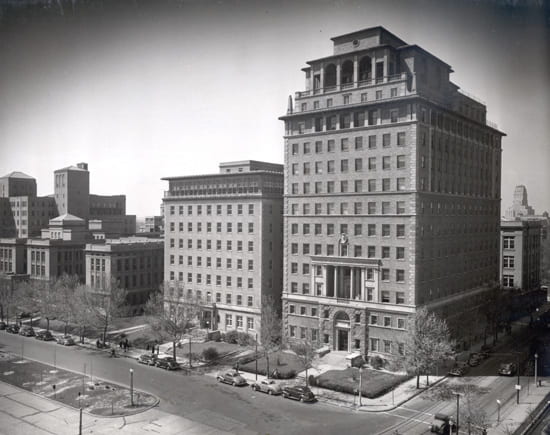
In 1930, two major endowments were brought together to create a new facility for clinical practice, instruction, and research at Washington University School of Medicine. That year, the McMillan Eye, Ear, Nose, and Throat Hospital, named in honor of Mr. and Mrs. William McMillan, was opened. Housed within the facility was the Oscar Johnson Institute, established to further research efforts by the Departments of Ophthalmology and Otolaryngology. Both McMillan and Johnson were St. Louis industrialists.
From our earliest days, excellence has been an integral part of the department’s fabric. A look at former faculty and program graduates reveals many of the true innovators in our field. While we remain humbled by our beginnings and past achievements, we choose not to rest on our laurels. Rather, we aspire to further our commitment to improving patients’ lives by leading our field through research, education and clinical application.
Today, more than ever, we are driven to provide the highest-quality, cutting-edge patient care that is both safe and effective.
Our Washington University physicians and teams, together with our award-winning hospital – Barnes-Jewish Hospital – are second to none when it comes to tackling the full spectrum of conditions involving the ear, nose, throat, head and neck. Our basic, translational and clinical research programs are remarkable, providing answers to a variety of relevant questions that build on our foundations of knowledge, lay the groundwork for future clinical trials, and provide state-of-the-art patient solutions.
Our educational programs for medical and graduate students, physicians in training, and established practitioners are committed to creating a culture of lifelong learning that firmly establishes our next generation of leaders in the field.
Our residency program is highly rated by all metrics, providing balanced training across the clinical sub-specialties and unique opportunities for growth and development as clinician-scientists and educators. And yet, we are most proud of a work culture that values collegiality, inclusiveness, diversity and mutual respect.
Leadership
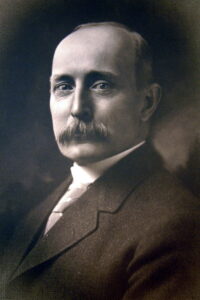
John B. Shapleigh was born in St. Louis, Missouri, on October 31, 1857. He received a Bachelor of Arts from Washington University, St. Louis, in 1878 then entered St. Louis Medical College, from which he graduated in 1881. After serving as assistant physician in the City Hospital, he went to Vienna to study clinical otology. He returned to St. Louis in the latter part of 1885 and began private practice. Dr. Shapleigh became Professor and Head of Department of Otology in the Medical Department of Washington University. The Shapleigh Family gave a bequest in 1937 to support and maintain the Dr. John B. Shapleigh Library for Otological Research at Washington University Medical School.
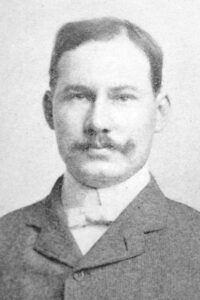
Greenfield Sluder was born in St. Louis on August 30, 1865. He received his education in the Manual Training School of Washington University and then graduated from St. Louis Medical College in 1888. He served as intern at City Hospital of St. Louis and then began private practice while serving as Instructor in clinical medicine at the college from 1891-1898. In 1896 and in 1900 he went to Europe to extend his medical studies in the Universities of Berlin and Vienna, taking special courses in diseases of the nose and throat. He became lecturer in laryngology until 1905. Dr. Sluder served as Director of Laryngology and Rhinology from 1923-1928. Dr. Sluder is remembered for his work on sphenopalatine neuralgia (Sluder’s headache) and his studies of tonsillitis and tonsillectomy. He is recognized for development of what is known as “Sluder’s tonsillitome”, an instrument for removal of the tonsils.
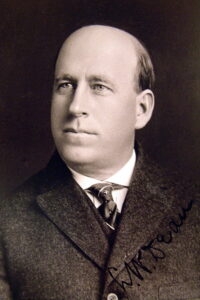
Lee Wallace Dean was born in Muscatine, Iowa, March 28, 1873. He received his medical degree at the State University of Iowa in 1896 then studied in Vienna from 1896-1897. He was Chair of Otolaryngology and Dean of The University of Iowa Medical College from 1912-1927. In 1927 he was recruited from the University of Iowa to become Professor and Head of the Department of Otolaryngology at Washington University. Dr. Dean served as the President of the Iowa State Medical Society, the American Laryngological Society, the American Laryngological, Rhinological and Otological Society, the American Otological Society, and the American Academy of Ophthalmology and Otolaryngology. He was also a member of the Board of Directors of the American Board of Otolaryngology. During World War I he was a commander of General Hospital No. 54 at the rank of Lieutenant Colonel. In 1937 Dr Dean was awarded the de Roaldes Gold Medal of the American Laryngological Association. In 1927 he became editor-in-chief of the Annals of Otology, Rhinology and Laryngology, a position he held until his retirement in 1940. Dr. Dean is known for his work in sinus treatment and research on the effect of smoke-polluted air on human life.
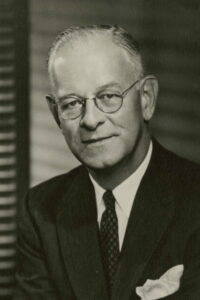
Theodore E. Walsh was born in Calcutta, India. He was educated at Cambridge University and St. Thomas’s Hospital Medical School in London, England in 1925. He came to the United States in 1928 and was appointed Head of the Department of Otolaryngology at Washington University in 1940 until his retirement in 1965. Dr. Walsh was one of the country’s earliest students of Dr. Julius Lempert, who in 1938 developed the one step fenestration operation for victims of otosclerosis. Dr. Walsh and his colleagues then developed a less drastic operation for deafness, the “mobilization of the stapes” done under a local anesthetic. Dr. Walsh was a pioneer in modern ear surgery. Throughout his tenure he collaborated extensively in the design of testing methods and devices for the hearing impaired patients with Dr. S. Richard Silverman, Director of the Central Institute for the Deaf, and Dr. Hallowell Davis, Director Emeritus.
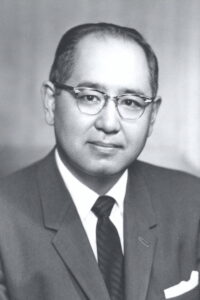
Joseph H. Ogura was born in San Francisco, California on May 25, 1915. He received his Medical Degree from the University of California in 1941, began as a resident in Pathology and Medicine from 1941-1942 and completed his residency in Medicine at Cincinnati General Hospital, University of Cincinnati College of Medicine in 1945. He fulfilled an Otolaryngology residency at Barnes Hospital & McMillan Hospital in 1948 and then joined the Otolaryngology faculty at the School of Medicine and became Head of the Department of Otolaryngology from 1966 until his death in 1982. He developed many surgical techniques in head and neck cancer surgery, especially conservation surgery of the larynx. He was active in laryngeal and nasopulmonary research for many years and won top research awards at national otolaryngology meetings. Dr. Ogura was much honored for his achievements as he was only the third physician in the history of the American Laryngological Association to receive its coveted “triple crown:” the James Newcomb Award in 1967 for laryngeal research, the Casselberry Award in 1968 for nasopulmonary work, and the deRoaldes Gold Medal in 1979 for career accomplishment. The Ogura Learning Center is now named for him, along with the prestigious annual Ogura Head and Neck Lectureship, established in 1977.
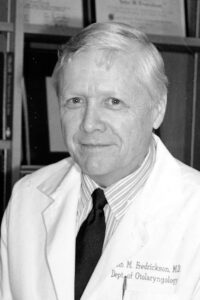
John M. Fredrickson was born on March 24, 1931 in Winnipeg, Manitoba. After receiving his M.D. from the University of British Columbia in 1957, he fulfilled two years of post-graduate training in Medicine and Pathology and entered the Otolaryngology residency at the University of Chicago. He spent two years in the Department of Neurophysiology at the University of Freiberg, Germany as a visiting NIH investigator then joined the faculty at Stanford University 1965-1968, went on to the University of Toronto as a Professor in the Department of Otolaryngology 1968-1982, and then became the Lindburg Professor and Head of the Department of Otolaryngology at Washington University School of Medicine until his retirement. He was a member of numerous medical societies and served as editor of the American Journal of Otolaryngology. Recognition for his research has included an honorary Ph.D. from the University of Linkoping, Sweden, and an honorary doctorate from the Medical College of Ohio.
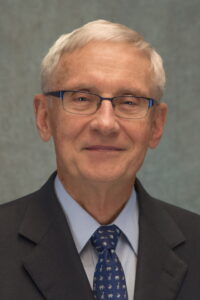
Dr. Chole is a nationally and internationally recognized expert in the field of otology & neurotology disorders. He has authored more than 200 scientific publications, book chapters and editorials. He has served on the Advisory Council of the National Institute for Deafness and Other Communication Disorders and was appointed to the Board of Scientific Counselors at the NIH in 2005. He was elected as the American Otological Society Guest of Honor in 2006 and in 2007 he received the Award of Merit from the American Otological Society for his contributions to research and education and service to the American Board of Otolaryngology. He was chosen to receive the Distinguished Service Award from the American Academy of Otolaryngology-Head and Neck Surgery Foundation in 2008 and he received Presidential Citations from the American Otological Society in 2013 and the American Neurotology Society in 2014. Dr. Chole received continuous NIH research funding from 1979 to 2016 for his work related to experimental cholesteatoma and otosclerosis, osteoclast cell biology, and microbial biofilms in otolaryngic disease. His innovative thinking has led to the development of new prosthetic devices, surgical approaches, and surgical tools.
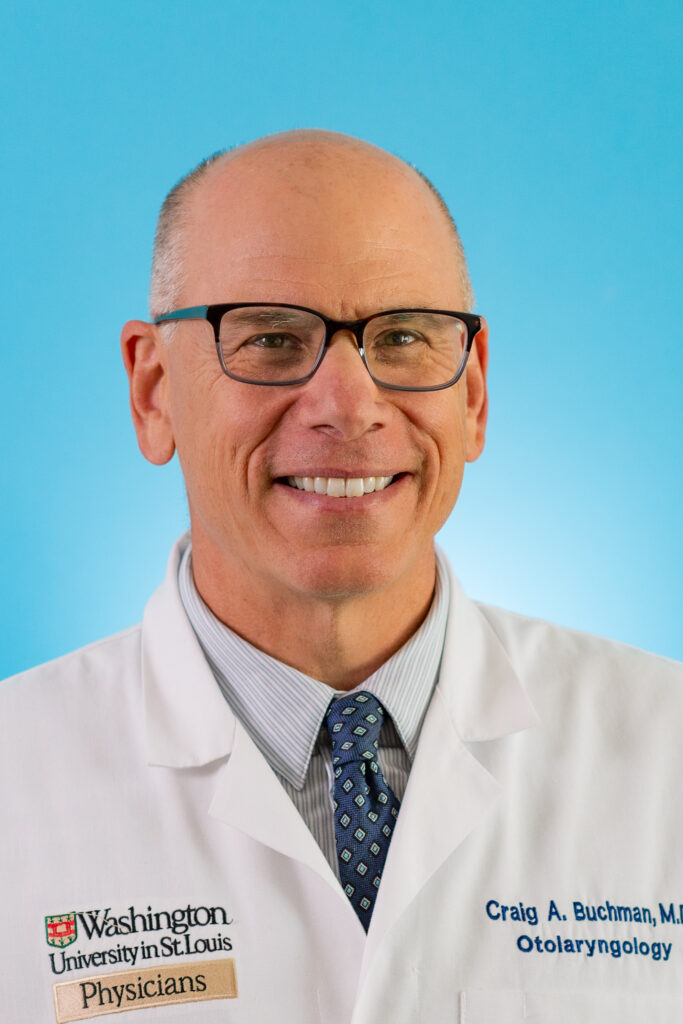
Dr. Buchman came to Washington University from the University of North Carolina at Chapel Hill where he served as Harold C. Pillsbury Professor, Vice Chairman for Clinical Affairs, and the Otology/Neurotology/Skull Base Surgery Division Chief in the Department of Otolaryngology-Head and Neck Surgery. He also led the Ear & Hearing and Multidisciplinary Skull Base Surgery Programs at UNC and was a member of the Academy of Educators. After receiving his medical degree from the University of Florida, Gainesville, Dr. Buchman completed his internship, research fellowship, and residency at the University of Pittsburgh and a clinical fellowship in neurotology and skull base surgery at the House Ear Clinic in Los Angeles. He has been cited annually in Castle Connolly’s Top Doctors and is one of the busiest cochlear implant surgeons and neurotologists in America. He is past Chair of the William House Cochlear Implant Study Group, Implantable Devices Committee of the American Academy of Otolaryngology-Head & Neck Surgery, and Joint Committee on Infant Hearing (JCIH). He was a founding member and chair of the American Cochlear Implant Alliance (ACIA), and past president of the American Neurotology Society . He has been a Senior and Neurotology Examiner for the American Board of Otolaryngology. He has published more than 200 peer-reviewed manuscripts as well as many other works and his research is actively funded by the National Institutes of Health (NIH).